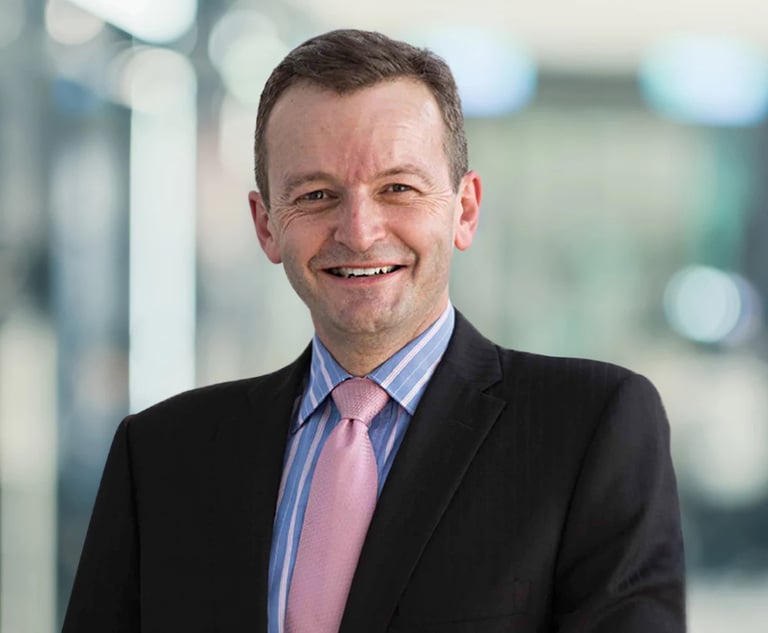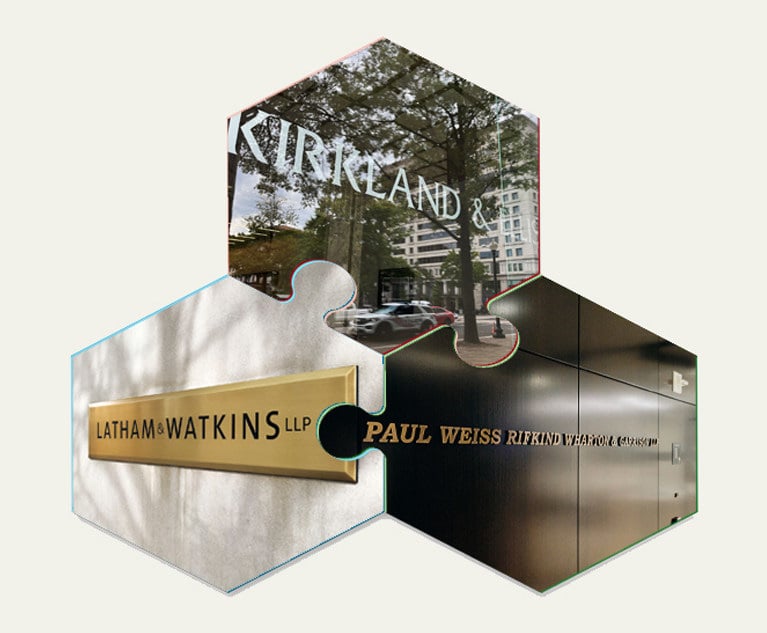A&O report reveals £3m redundancy costs in back office shake-up
Allen & Overy (A&O) has set aside £3m for City redundancy payouts as it overhauls its back office team in light of its new 'onshoring' arm in Belfast. The total cost towards the Northern Ireland support centre was £4m in the 2010-11 financial year, according to the magic circle firm's annual report, of which £3m will be spent on redundancy payouts. However, the firm will be able to claim back the majority of that cost through a £2.5m grant it will receive from Invest Northern Ireland for creating local jobs.
September 06, 2011 at 09:00 AM
3 minute read
Allen & Overy (A&O) has set aside £3m for City redundancy payouts as it overhauls its back office team in light of its new 'onshoring' arm in Belfast.
The total cost towards the Northern Ireland support centre was £4m in the 2010-11 financial year, according to the magic circle firm's annual report, of which £3m will be spent on redundancy payouts. However, the firm will be able to claim back the majority of that cost through a £2.5m grant it will receive from Invest Northern Ireland for creating local jobs.
One hundred and fifty-five London business support jobs are at risk due to the launch in Belfast this autumn. The report states that the Belfast operation will save £11m in its first five years of operation and £8m annually after that.
The news comes as part of A&O's financial report for 2010-11, which is issued with its annual review, which also highlighted a number of other costs and a decline in profits available to be paid out.
Although the firm reported average profits per equity partner had remained stable at £1.1m for last year, the firm's profits available for distribution among members was down by 9%, from £328.6m the previous year to £298m in 2010-11.
Meanwhile, total costs at the firm, which has sustained sizeable international investment over the last 18 months, increased by 6% to £675m, while one-off costs reached £29m, including £24.6m for relocating 200 staff from its Canary Wharf outpost earlier this year. However, the property cost is included for accounting reasons as it will be spread over partner distributions throughout the length of the lease.
The firm's annual review also highlighted a decline in the amount of hours spent on pro bono work by the firm's lawyers from 57,300 hours in 2009-10 to 41,718, while the total percentage of lawyers who recorded time on pro bono work fell from 45% to 30%. If measured in billable time, the total value of the pro bono hours fell from £18.39m to £14.31m.
The report also includes details of the City giant's ethnic and gender mix at various levels. The gender split saw a minor decrease in the proportion of women partners, falling 1% to 15%, while the proportion of female associates remained at 45%. Fifty-six percent of the firm's trainees are currently female, up from 54% the previous year, while women continue to dominate support staff roles, counting for 73%, compared to 72% last year.
The report shows that 6% of the firm's partners are designated as part of an ethnic minority, though 5% were unclassified. Seventeen percent of associates are classed as ethnic minorities, rising to 22% for trainees.
Total staff costs rose to £417m from £383.9m on the back of the firm's expansion, which included office openings in Australia and Qatar. The firm reported a turnover rise of 7% for the financial year to £1.12bn, while the average number of equity partners grew by 12%, including 34 lateral hires.
The firm's senior management, David Morley and Wim Dejonghe, strike a confident tone in an interview introducing the annual review. Morley comments: "I'm very bullish about the future of the firm. We occupy a position very few of our competitors enjoy, particularly with the growing trend towards globalisation and the fact that businesses are increasingly working across borders. I see growing demand for top-tier legal advice."
This content has been archived. It is available through our partners, LexisNexis® and Bloomberg Law.
To view this content, please continue to their sites.
Not a Lexis Subscriber?
Subscribe Now
Not a Bloomberg Law Subscriber?
Subscribe Now
NOT FOR REPRINT
© 2025 ALM Global, LLC, All Rights Reserved. Request academic re-use from www.copyright.com. All other uses, submit a request to [email protected]. For more information visit Asset & Logo Licensing.
You Might Like
View All
‘The US Market Is Critical’: KPMG’s Former Head of Global Legal Services On the Big Four Firm’s Legal Arm Entering the US
6 minute read

Trending Stories
- 1Some Thoughts on What It Takes to Connect With Millennial Jurors
- 2Artificial Wisdom or Automated Folly? Practical Considerations for Arbitration Practitioners to Address the AI Conundrum
- 3The New Global M&A Kings All Have Something in Common
- 4Big Law Aims to Make DEI Less Divisive in Trump's Second Term
- 5Public Notices/Calendars
Who Got The Work
J. Brugh Lower of Gibbons has entered an appearance for industrial equipment supplier Devco Corporation in a pending trademark infringement lawsuit. The suit, accusing the defendant of selling knock-off Graco products, was filed Dec. 18 in New Jersey District Court by Rivkin Radler on behalf of Graco Inc. and Graco Minnesota. The case, assigned to U.S. District Judge Zahid N. Quraishi, is 3:24-cv-11294, Graco Inc. et al v. Devco Corporation.
Who Got The Work
Rebecca Maller-Stein and Kent A. Yalowitz of Arnold & Porter Kaye Scholer have entered their appearances for Hanaco Venture Capital and its executives, Lior Prosor and David Frankel, in a pending securities lawsuit. The action, filed on Dec. 24 in New York Southern District Court by Zell, Aron & Co. on behalf of Goldeneye Advisors, accuses the defendants of negligently and fraudulently managing the plaintiff's $1 million investment. The case, assigned to U.S. District Judge Vernon S. Broderick, is 1:24-cv-09918, Goldeneye Advisors, LLC v. Hanaco Venture Capital, Ltd. et al.
Who Got The Work
Attorneys from A&O Shearman has stepped in as defense counsel for Toronto-Dominion Bank and other defendants in a pending securities class action. The suit, filed Dec. 11 in New York Southern District Court by Bleichmar Fonti & Auld, accuses the defendants of concealing the bank's 'pervasive' deficiencies in regards to its compliance with the Bank Secrecy Act and the quality of its anti-money laundering controls. The case, assigned to U.S. District Judge Arun Subramanian, is 1:24-cv-09445, Gonzalez v. The Toronto-Dominion Bank et al.
Who Got The Work
Crown Castle International, a Pennsylvania company providing shared communications infrastructure, has turned to Luke D. Wolf of Gordon Rees Scully Mansukhani to fend off a pending breach-of-contract lawsuit. The court action, filed Nov. 25 in Michigan Eastern District Court by Hooper Hathaway PC on behalf of The Town Residences LLC, accuses Crown Castle of failing to transfer approximately $30,000 in utility payments from T-Mobile in breach of a roof-top lease and assignment agreement. The case, assigned to U.S. District Judge Susan K. Declercq, is 2:24-cv-13131, The Town Residences LLC v. T-Mobile US, Inc. et al.
Who Got The Work
Wilfred P. Coronato and Daniel M. Schwartz of McCarter & English have stepped in as defense counsel to Electrolux Home Products Inc. in a pending product liability lawsuit. The court action, filed Nov. 26 in New York Eastern District Court by Poulos Lopiccolo PC and Nagel Rice LLP on behalf of David Stern, alleges that the defendant's refrigerators’ drawers and shelving repeatedly break and fall apart within months after purchase. The case, assigned to U.S. District Judge Joan M. Azrack, is 2:24-cv-08204, Stern v. Electrolux Home Products, Inc.
Featured Firms
Law Offices of Gary Martin Hays & Associates, P.C.
(470) 294-1674
Law Offices of Mark E. Salomone
(857) 444-6468
Smith & Hassler
(713) 739-1250









